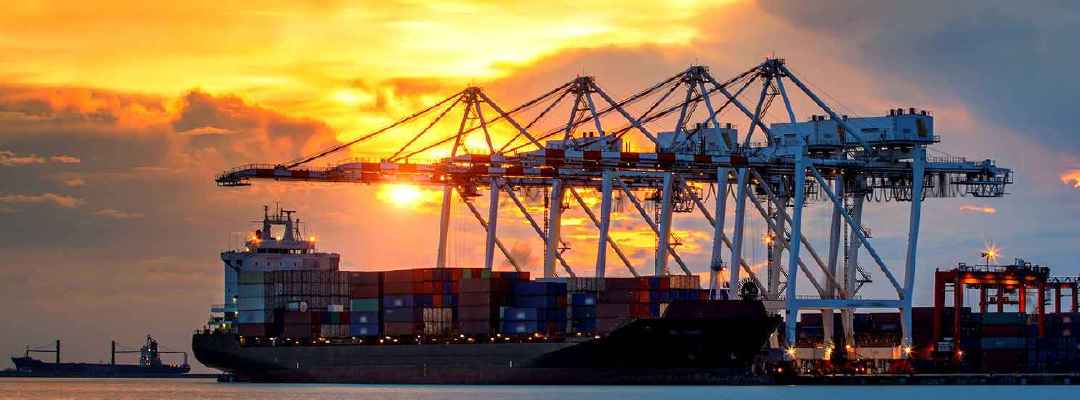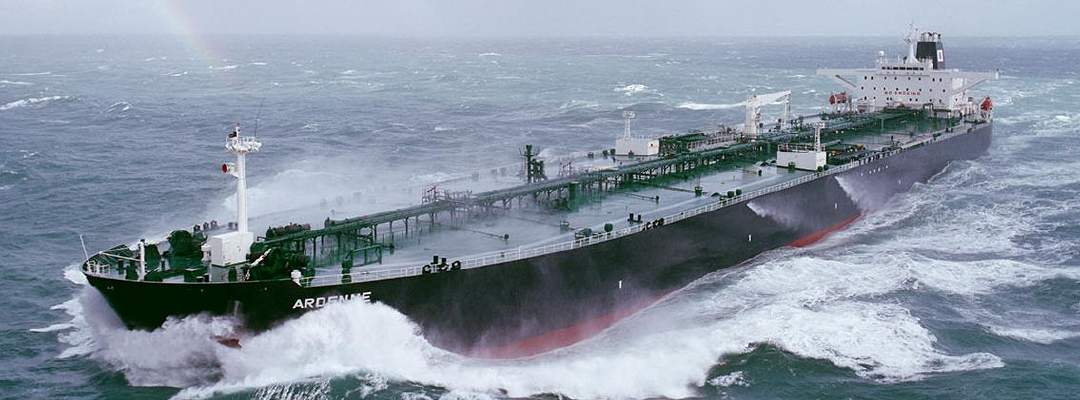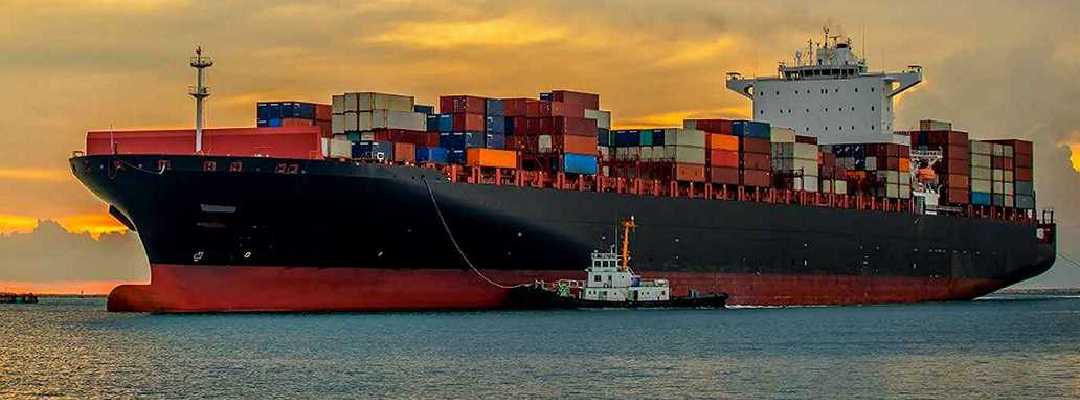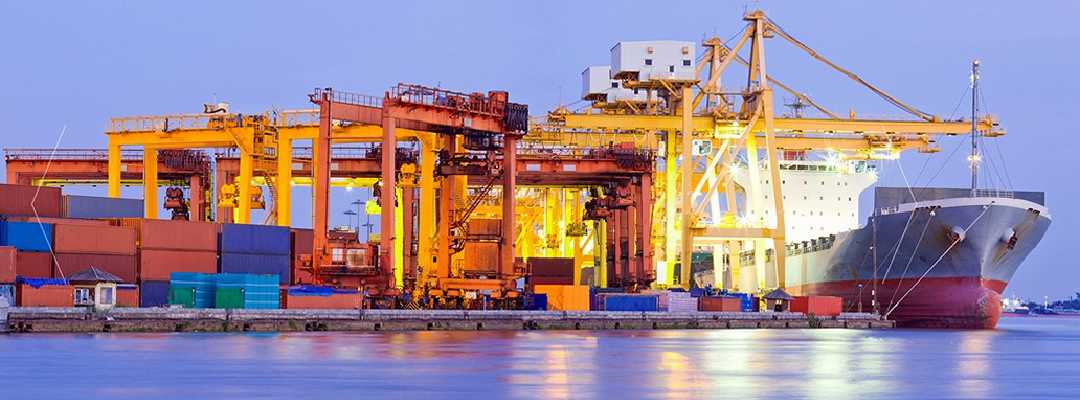EXPORT FINANCING
Trade Finance Solutions For Exports
As an exporter, you can’t afford to wait until your buyer receives the goods you’ve shipped to receive payment and you certainly can’t wait until the buyer has re-sold the goods. But, if you could offer terms to your buyers you would rack up more sales. We can bridge that gap by structuring Export Financing that will protect you throughout the deal, provide pre-export cash flow, and extend favorable terms to your buyer.
Export Financing Overview
Trade finance, already a specialized niche in the banking and financial services sector, becomes even more specialized when it focuses on just export financing. Export financing and the broader trade finance are enormously different from commercial and mortgage lending. Trade financing and export financing have to account for extended time frames in the transaction lifecycle because buyer and seller are separated by up to two oceans and 10,000 miles. It takes longer to communicate, longer to ship and longer to get paid than with local transactions.
Export transactions are also impacted by internationally required trade finance due diligence, know your customer CIS requirements and anti-money laundering statutes that make trade and trade finance providers do the heavy lifting. The reliability and suitability of importers and exporters are also examined. With export financing, those investigations focus entirely on the export side of the ledger.
While import-export transactions financed with cash in advance, open account and consignment purchases do take place, they almost never do, so we focus on the 80% to 90% of the industry that relies on professional, value-add export financing.
Global Trade Funding stands ready to extend export financing services to you today. Take a look at the grid of export financing methods below to learn more and determine if you have a strong preference as to the type of trade finance we set-up. Click the Apply for Export Financing links or buttons to get your export financing started. If you’re not ready to apply for financing, we encourage you to learn more about the Trade Finance Solutions best suited for your deal.
Export Financing Solutions
Demand for export financing continues to rise amid the growing world shortage of trade finance. As it is becoming increasingly difficult to secure adequate trade financing, especially for small to medium-sized enterprises (SME) Global Trade Funding truly stands out as we continue to provide an uninterrupted flow of trade financing. We also enhance every application with unparalleled underwriting expertise and every transaction with Deal Structuring and Due Diligence advisory services. If you are having difficulty securing trade financing or if you applied for financing and were turned down by other lenders, submit a Trade Finance Request now and we’ll get the financing for your deal started today.
Export Financing Costs
The costs of borrowing, including interest rates, insurance and fees will vary. The total cost and its effect on the price of the product and profit from the transaction should be well understood before a pro forma invoice is submitted to the buyer.
Export Financing Terms
Costs increase with the length of terms. Different methods of financing are available for short, medium, and long terms. Exporters need to be fully aware of financing limitations so that they secure the right solution with the most favorable terms for seller and buyer.
Risk Management in Export Financing
The greater the risks associated with the transaction, the greater the cost to manage or mitigate the risk. The creditworthiness of the buyer directly affects the probability of payment to an exporter, but it is not the only factor of concern to a potential lender. The political and economic stability of the buyer’s country are taken into consideration. Lenders are generally concerned with two questions:
Can the exporter perform? They want to know that the exporter can produce and ship the product on time and that the product will be accepted by the buyer.
Can the buyer pay? They want to know that the buyer is reliable with a good credit history. They will evaluate any commercial or political risk.
If a lender is uncertain about the exporter’s ability to perform, or if additional credit capacity is needed, government guarantee programs are available that may enable the lender to provide additional financing.
Government Agency Assistance
Several federal and state government agencies offer programs to assist exporters with financing needs. Some are guarantee programs that require the participation of an approved lender, while others provide loans or grants to the exporter or a foreign government.
Government programs are generally aimed at improving an exporter’s access to credit. They are not intended to subsidize the cost of credit. With few exceptions, banks are allowed to charge market interest rates and fees; a portion of those fees are paid to the government agency to cover the agencies’ administrative costs and default risks.
Government guarantee and insurance programs are used by financiers to reduce the risk associated with loans to exporters. Lenders who are concerned with an exporter’s ability to perform under the terms of sale, and with an exporter’s ability to be paid, often use government programs to reduce the risks that would otherwise prevent them from providing financing.
Export Import Bank
Export Import Bank of the United States (EXIM Bank) is an independent federal government agency responsible for assisting with export financing for US goods and services. It offers a variety of information services, insurance, loan, and guarantee programs.
Ex-Im Bank operates an export financing hotline that provides information on the availability and use of export credit insurance, guarantees, direct and intermediary loans extended to finance the sale of U.S. goods and service abroad.
Briefing programs are offered by Ex-Im Bank to the small business community. These programs include regular seminars, group briefings, and individual discussions held both within the Bank and around the country.
Small Business Administration
The Small Business Administration (SBA) has some services specifically designed to help the small business get started in exporting. The SBA provides financial assistance programs for U.S. exporters. Applicants must qualify as small businesses under the SBA’s size standards and meet other eligibility criteria. The SBA has two main programs to assist U.S. exporters—the Export Working Capital Program and the International Trade Loan (ITL) program.
The SBA programs provide the small business owner with financing aids that will enable the business to obtain the capital needed to get into exporting. This program is designed to help small business exporters obtain financing by reducing risks to lenders. The SBA will guarantee up to 90% of a loan from a private bank. The proceeds from the loan can be used for pre-shipment working capital, post-shipment exposure coverage, or a combination of both.
Export Credit Insurance
It is almost inevitable that you will have to extend competitive credit terms to foreign buyers in you are going to grow your international business, which means absorbing more risk. What happens if you don’t get paid? Your foreign customers could go out of business or file bankruptcy, face currency devaluations or foreign exchange problems, run short on cash, or fail to pay you for any number of other commercial or political reasons. You can protect your foreign receivables against virtually all non-payment risks with an export credit insurance policy.
Export credit insurance is an effective sales tool that enables you to extend competitive payment terms without significantly increasing your risk. It can help you penetrate new markets, negotiate larger order quantities, establish or expand distribution, and increase the profitability of your export business. If you finance your receivables, the coverage will also make your foreign A/R more attractive to banks, factors, and other lenders so you can negotiate the most favorable advance rates and loan terms.
Trade Finance Learning Center
With more than 80% of the world’s trade depending on trade finance it is an essential segment of the financial services sector. It is also one of the least understood of the financial services. One of the things that undermine people’s understanding of trade finance is the absence of a single vocabulary. Do a search for the definition of import financing, for instance, and the top 20 results will provide 20 different definitions. Our trade finance learning center publishes content that we hope will improve understanding of trade finance and its various component segments. Each of the below tabs provides the factual information you need to make good business decisions, beginning with important trade finance definitions.
Accounts Receivable
Accounts Receivable is money owed to a company by a customer for products and /or services sold. Accounts receivable is considered a current asset on a balance sheet once an invoice has been sent to the customer.
Accounts Receivable Factoring
Accounts Receivable Factoring is a method of Trade Financing where a company sells their accounts receivable in exchange for working capital. The purchaser of the receivables relies on the creditworthiness of the customers who owe the invoices, not the subject company.
For details go to Accounts Receivable Factoring »
Advance Against Documents
Advances Against Documents are loans made solely based on the security of the documents covering the shipment.
Asset Based Lending
Asset Based Lending is a method of Trade Financing that allows a business to leverage company assets as collateral for a loan. Asset-based loans are an alternative to more traditional lending which is generally characterized as a higher risk which requires higher interest rates.
Cash Against Documents
Cash Against Documents is the payment for goods in which a commission house or other intermediary transfers title documents to the buyer upon payment in cash.
Cash in Advance
Payment for goods in which the price is paid in full before shipment is made. This method is usually used only for small purchases or when the goods are built to order.
Cash with Order
Cash with Order is the payment for goods whereby the buyer pays when ordering and in which the transaction is binding on both parties.
Commercial Finance
Commercial Finance is defined as the offering of loans to businesses by a bank or other lender. Commercial loans are either secured by business assets, accounts receivable, etc., or unsecured, in which case the lender relies on the borrower’s cash flow to repay the loan.
Confirmed Letter of Credit
A Confirmed Letter of Credit is a Letter of Credit issued by a foreign bank, which has been confirmed as valid by a domestic bank. An exporter whose form of payment is a Confirmed Letter of Credit is assured of payment by the domestic bank who confirmed the Letter of Credit even if the foreign buyer or the foreign bank defaults.
Consignment
Consignment is a delivery of merchandise from an exporter (the consignor) to an agent (the consignee) subject to an agreement by the agent that the agent will sell the merchandise for the benefit of the exporter, subject to certain limitations, like a minimum price. The exporter (consignor) retains ownership of and title to the goods until the agent (consignee) has sold them. Upon the sale of the goods, the agent typically retains a commission and remits the remaining net proceeds to the exporter.
For details go to Consignment Purchase »
Cross-Border Sale
A Cross-Border Sale refers to any sale that is made between a firm in one country and a firm located in a different country.
Factoring
Factoring is the selling of a company’s invoices and accounts receivable at a discount. The lender assumes the credit risk of the debtor and receives the cash when the debtor settles the account.
For details go to Accounts Receivable Factoring »
Invoice Discounting
Invoice Discounting is a type of loan that is drawn against a company’s outstanding invoices but does not require that the company give up administrative control of those invoices.
factoring invoices
factoring invoices is one of the most common methods of trade financing. Your company sells their invoices to a factor in exchange for immediate liquidity. The factor who purchases the invoices relies on the creditworthiness of the customers who owe the invoices, not the subject company.
For details go to factoring invoices »
Irrevocable Letter of Credit
Irrevocable Letter of Credit is a Letter of Credit in which the specified payment is guaranteed by the bank if all terms and conditions are met by the drawee.
Letter of Credit
Letter of Credit or LC is the most common trade finance solution in the world. A Letter of Credit is a document issued by a bank for the benefit of a seller or exporter, which authorizes the seller to draw a specified amount of money, under specified terms, usually the receipt by the issuing bank of certain documents within a given time.
For details go to Letters of Credit For Imports »
Open Account
Open Account is a trade arrangement in which goods are shipped to a foreign buyer without guarantee of payment. The obvious risk this method poses to the supplier makes it essential that the buyer’s integrity be unquestionable.
For details go to Open Accounts »
Pro forma Invoice
Pro forma Invoice is an invoice provided by a supplier prior to the shipment of merchandise, which informs the buyer of the kinds, nature and quantities of goods to be shipped along with their value, and other important specifications such as weight and size.
Receivable Management
Receivable Management involves processing activities related to managing a company’s accounts receivable including collections, credit policies and minimizing any risk that threatens a firm from collecting receivables.
Revocable Letter of Credit
Revocable Letter of Credit is a Letter of Credit that can be canceled or altered by a buyer after it has been issued by the buyer’s bank.
Structured Trade Finance
Structured Trade Finance is cross-border trade finance in emerging markets where the intention is that the loan gets repaid by the liquidation of a flow of commodities.
Trade Credit Insurance
Trade Credit Insurance is a risk management product offered to business entities wishing to protect their balance sheet assets from loss due to credit risks such as protracted default, insolvency, and bankruptcy. Trade Credit Insurance often includes a component of political risk insurance, which ensures the risk of non-payment by foreign buyers due to currency issues, political unrest, expropriation, etc.
Global Report On Business Regulations 2017
Annual Report On Business Regulations Business Regulations that enhance business activity and those that constrain it are examined in World Bank Annual Report On Business Regulations, entitled Doing Business 2017. It is the 14th
IMF Raised 2017 Global Economic Growth Forecast
Global Economic Growth On The Rise Global economic growth is strengthening according to economists at the International Monetary Fund. The IMF sees positive trends in investment, manufacturing, and trade worldwide. As a result, International
World Trade Week Ordered By Trump To Promote Global Trade
World Trade Week Strengthens Economic Growth President Donald Trump has issued a presidential proclamation to create World Trade Week. World Trade Week will take place the week of May 21 through May 27 per
Dublin · Hong Kong · London · Mexico City · Prague · Sydney · Vancouver · Washington DC · Zurich





